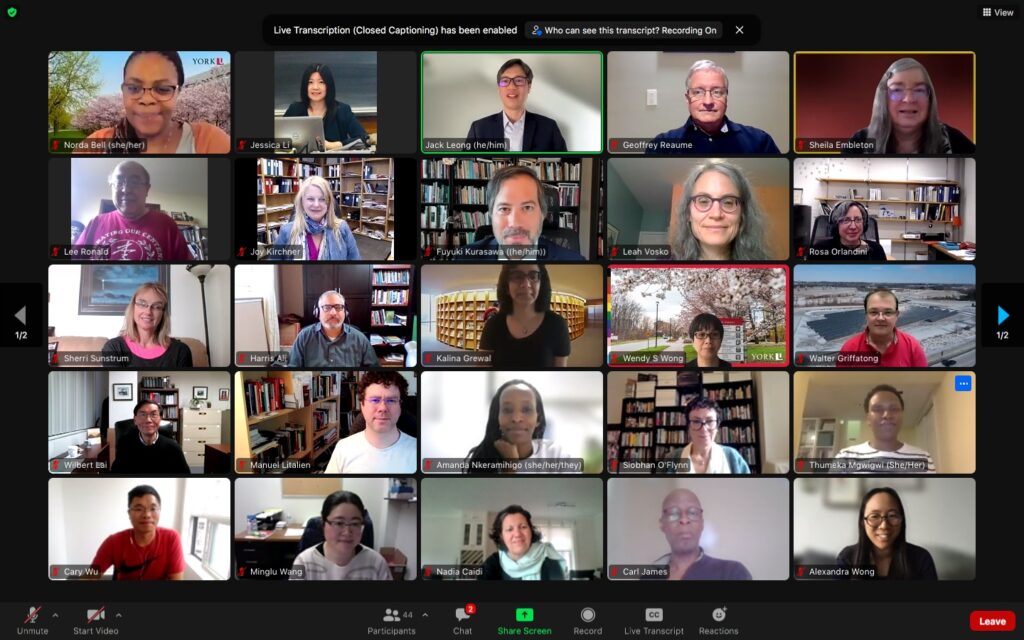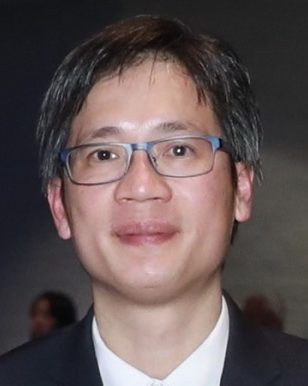
More than 30 presenters from across Canada shared their research on how disinformation affects vulnerable groups during a virtual symposium hosted by York University Libraries on May 3 and 4.
The event “Navigating Information and Race in the Era of COVID-19” was organized to help advance multidisciplinary, transcultural and transnational understandings of how disinformation affects Canada’s marginalized, minority and Indigenous communities.
Senior scholars, emerging academics and community business leaders shared their research and lived experiences through featured papers, panel presentation and roundtable discussions focused on information navigation and the state of digital access to information across various axes of difference, such as gender, race, ethnicity, nationality, religion, philosophy, history, literature, migration, marketplace and diasporas in the multicultural Canadian context.
Canadian businesswoman, author and philanthropist Vivienne Poy offered opening remarks, saying, “Pandemics like this one will happen again and again in the future. I would like to think that we will get smarter the next time around and be able to mitigate the worst health crisis. Racism can be unlearned through education, and that is why we have a two-day symposium to discuss issues that concern us.”

Participants offered a plurality of voices to explore questions such as:
- What are the reasons for the spread of misinformation and mistrust affecting BIPOC communities?
- How do we address community safety in this environment?
- What are the effects of language and cultural encounters on racism in the multicultural Canadian context?
- What do the patterns of systematic discrimination and inequality of access to information look like during the pandemic?
- What are the negative impacts and abuses among vulnerable communities, and how do we address them?
- What are the roles of the media on the spread of mis/disinformation and how they incorporate the values of equity, diversity and inclusion in terms of access to information and health resources during and beyond the pandemic?

Jack Leong, associate dean at York University Libraries, shared his analysis of news reports and scholarly articles on how the use of non-official naming of COVID-19 associated with a race produced a divisive, alienating and racist discourse of treating Asian immigrants and other vulnerable community members as “the other.” He proposed that for long-term well-being and social functioning of Chinese Canadians, and other vulnerable communities, maintaining their heritage identity could help to cure the illness of racism by achieving a strong and positive multicultural self-identity.
The work for this timely and relevant project on information and race will continue into the next stage of publication. Additionally, speakers were invited to submit their presentation papers for a special issue, which will be published an open access academic volume.
“Information is central to the Libraries’ mission and vision of an informed, just and democratic citizenship. Accessing accurate and bias-free health and anti-racism messages on the internet became more critical than ever during the COVID-19 pandemic,” said Leong. “We felt that Libraries could offer a neutral space to facilitate research and engage in dialogue about misinformation, racism and COVID-19 from multidisciplinary and interdisciplinary perspectives.”
Leong organized the symposium along with colleagues Norda Bell, Kalina Grewal, Thumeka Mgwigwi and Sharon Wang as part of their Social Sciences and Humanities Research Council (SSHRC) Digital Citizen Connection Grant Project.
“I am so proud that our Libraries are hosting these critical conversations on misinformation and disinformation,” said Joy Kirchner, dean of Libraries. “Discussion on how to discern authoritative sources is more important now than ever, in an age where misinformation and disinformation are proliferating, and being mobilized, with tremendous impact on marginalized and minority communities.”
The symposium was planned with support from: Poy; Kirchner; Abidin Kusno, director of York Centre for Asian Research; Mary Condon, dean of Osgoode Hall Law School; Siobhan O'Flynn, director of Canadian Studies Program, University College, University of Toronto; Rachel Silvey, Richard Charles Lee Director of Asian Institute, University of Toronto; and Justin Poy, president and creative dacirector of Justin Poy Agency.
